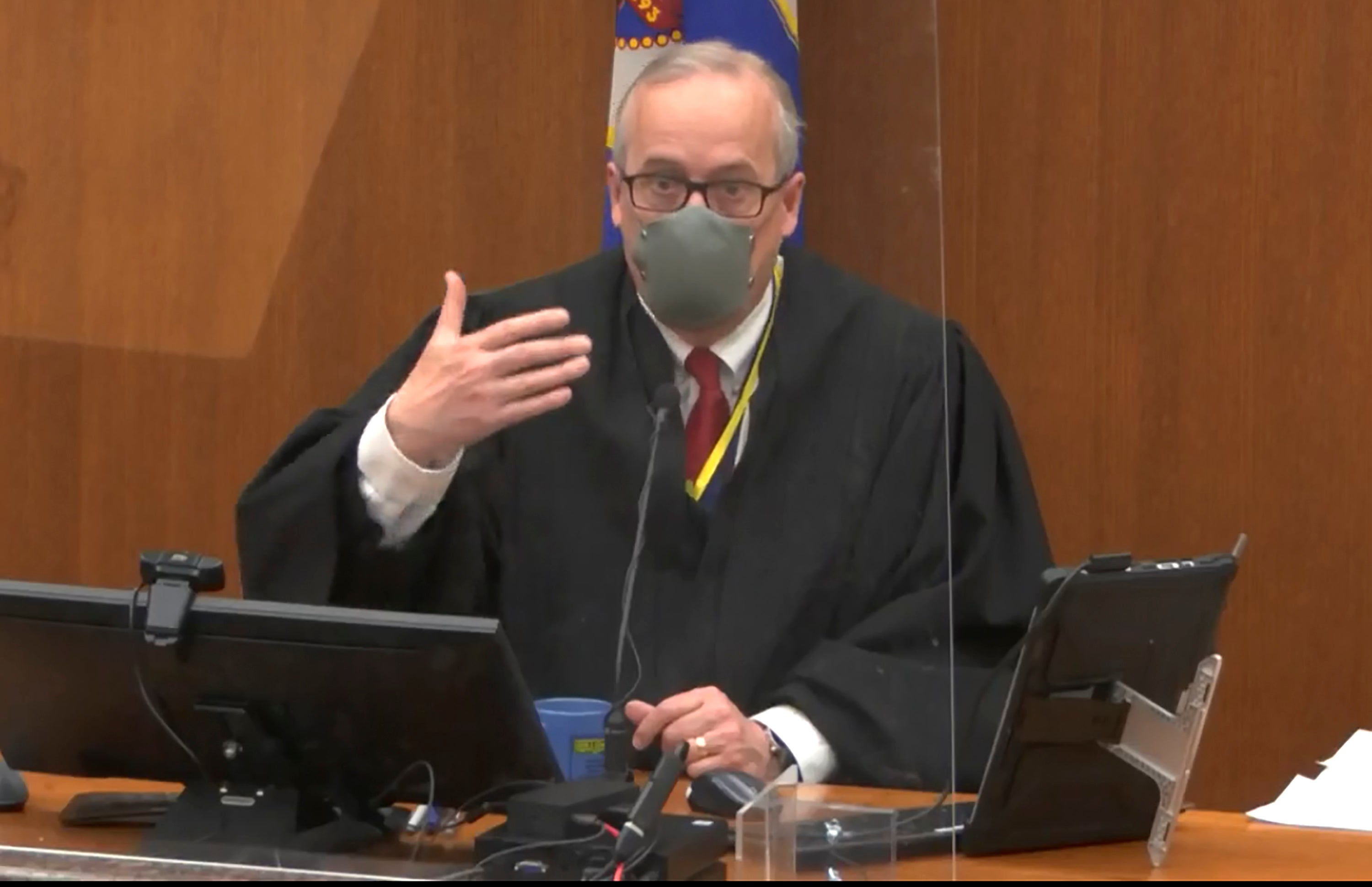EXPLAINER: Striking jurors in ex-cop's trial in Floyd death
As attorneys in the trial of a former Minneapolis police officer charged in George Floyd’s death screen potential jurors, they’re on guard for anything that suggests jurors would help, or hurt, their side

Your support helps us to tell the story
From reproductive rights to climate change to Big Tech, The Independent is on the ground when the story is developing. Whether it's investigating the financials of Elon Musk's pro-Trump PAC or producing our latest documentary, 'The A Word', which shines a light on the American women fighting for reproductive rights, we know how important it is to parse out the facts from the messaging.
At such a critical moment in US history, we need reporters on the ground. Your donation allows us to keep sending journalists to speak to both sides of the story.
The Independent is trusted by Americans across the entire political spectrum. And unlike many other quality news outlets, we choose not to lock Americans out of our reporting and analysis with paywalls. We believe quality journalism should be available to everyone, paid for by those who can afford it.
Your support makes all the difference.As attorneys in the trial of a former Minneapolis police officer charged in George Floyd s death screen potential jurors, they're on guard for anything that suggests jurors would help, or hurt, their side.
Prosecution and defense attorneys get a number of peremptory challenges to remove unwanted potential jurors and can also ask the judge to dismiss “for cause.”
Here's a look at what those terms mean and how the jury selection process is playing out in the closely watched trial of Derek Chauvin the former officer:
WHAT'S INFLUENCING JURY SELECTION IN CHAUVIN'S CASE?
That can be summed up in one word: Publicity Widely circulated bystander video of Floyd's death coupled with widespread protests that consumed much of the country in the weeks that followed make it challenging to find people without an opinion on the case.
Hennepin County court officials sent prospective jurors a lengthy questionnaire in December written by prosecutors and defense attorneys. Questions ranged from what recipients knew of the case from media reports, whether they had ever been placed in a chokehold by police, whether they felt the criminal justice system treats Black people unfairly, whether they believe Minneapolis police are more likely to use force against Black suspects, and whether they trust police.
HOW CAN ATTORNEYS AND THE JUDGE SHAPE THE JURY PANEL?
The judge dismissed roughly two dozen jurors outright “for cause,” with agreement from both sides, based solely on their answers to the questionnaire. An unlimited number of jurors can also be stricken “for cause” during an in-person question-and-answer session in the courtroom known as voir dire, which is French for “speak the truth.”
Attorneys may raise or suggest the dismissal of a juror “for cause,” but they must give a reason, and it’s the judge who decides.
A common reason for this type of strike: The juror has demonstrated he or she can’t be impartial.
Minnesota court rules also allow each side to strike a fixed number of prospects in what are called peremptory strikes.
HOW DO PEREMPTORY CHALLENGES WORK?
Neither side has to give a reason for striking a juror with a peremptory challenge, with one big exception. A strike cannot be solely due to a person's race. And if the other side suspects it is, they can ask the judge to intervene. That's happened twice so far, when the prosecution objected to the defense striking two Hispanic jurors.
Judge Peter Cahill ruled that he was satisfied that the defense's reason for dismissing those two jurors was not due to their race.
HOW HAS THE JUDGE TWEAKED THE RULES FOR CHAUVIN'S CASE?
Typically in cases like Chauvin’s where the potential sentence is something less than life in prison, prosecutors get three peremptory strikes and defense attorneys get five.
But judges have discretion to increase those, and Cahill has done just that, granting the defense 15 and prosecutors nine. Cahill hasn't said why, but Mike Brandt, a local defense attorney, said he believes the judge wanted to give both sides more latitude to strike marginal jurors given the intense publicity surrounding the case.
WHY DOES JURY SELECTION MATTER SO MUCH?
Both sides want to seat jurors favorable to their positions while keeping others who might support the opposition off the panel. Those strategies are playing out alongside Chauvin's constitutional right to an impartial jury. Any perception that the jury was biased going in could give Chauvin fodder for an appeal.
“If in fact there's a guilty verdict, I think one of the things that will be appealed by the defense is the pretrial publicity rendered it ultimately impossible for a jury to render a fair and impartial verdict,” said David Schultz, a law professor at the University of Minnesota.
___
Associated Press writers Amy Forliti and Steve Karnowski in Minneapolis contributed to this report.
___
Find AP’s full coverage of the death of George Floyd: https://apnews.com/hub/death-of-george-floyd